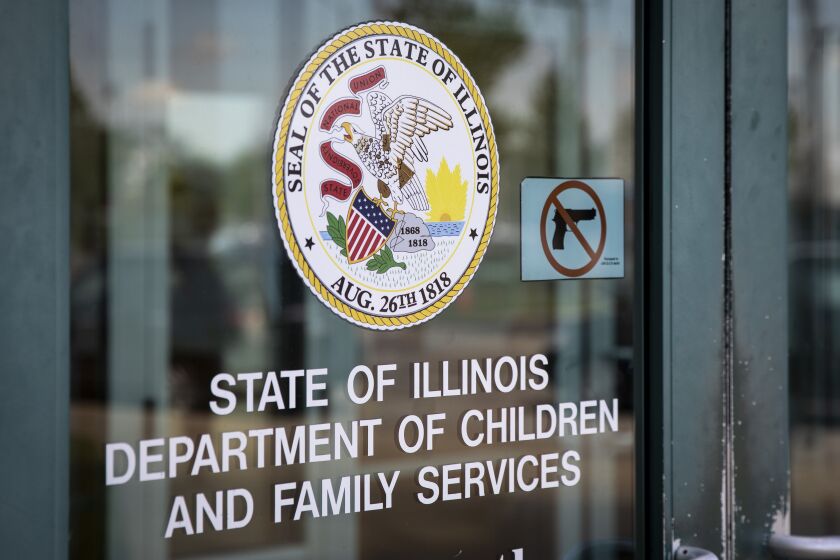The recent revelation that children under the care of the Illinois Department of Children and Family Services had been sleeping in administrative offices may be “merely the tip of a very large iceberg,” a county watchdog says.
Internal emails show DCFS recognized last month that it had a “deeply broken process” that led to children spending the night in office space, sometimes on the floor.
DCFS, after scouring a limited amount of data — and none from private groups it works with — has found 16 instances over seven recent weeks (May 6 through June 28) in which kids slept in offices.
But DCFS tracked only those kids brought to offices to spend the night before 12:30 a.m. and who remained until 6 a.m. or later; kids arriving after 12:30 a.m., or awakened to go to a different location before 6 a.m., weren’t counted, according to Cook County Public Guardian Charles Golbert.
Also, the agency has no system to track children who end up sleeping in offices of any private social service agencies the state contracts with to care for children, according to documents the agency shared with Golbert after he filed a lawsuit to force DCFS to comply with a Freedom of Information Act request he filed in June.
Such a tracking system is critical because about 80% of the state’s 17,000-plus foster care caseload is privatized, Golbert said.
DCFS put part of the blame on the administration of former Gov. Bruce Rauner.
“These children need better. To make matters worse, this information was not being tracked or shared by previous administrations,” DCFS Acting Director Marc D. Smith said in a written statement.
“Rebuilding the shelter and foster care infrastructure that was decimated over the past four years will take years, extraordinary resources and dedication. Since 2015, DCFS has lost 2300 licensed foster homes and more than 70% of the shelter beds available to young people in crisis.”
The agency has launched a state-wide effort to recruit more foster homes, and is trying to secure other shelter options, Smith said.
Meanwhile, once they knew of the problem, Smith said “we quickly put a process in place to identify when these incidents occur so that we can use that information to understand the scope of this issue and put strong solutions in place as quickly as possible.”
Records reinforce the idea that DCFS officials were caught off guard by Golbert’s enquiries.
“We have a deeply broken process that I am learning leaves children across the state sleeping unnecessarily in offices even when beds are available for the night. We simply need to find solutions,” Desiree Silva, chief deputy director of statewide operations for DCFS, said in a June 19 email included in the more than 200 pages of documents produced through the FOIA request.
“These are kids who’ve just been taken away from their parents to protect them from abuse or neglect, or they’re kids who were already in DCFS care but whose placement was disrupted, and then they’re told, ‘Here, go sleep on the floor or on a chair in an office,’” Golbert said.
DCFS also had no system to track kids who ended up sleeping in its own state-run office space.
After Golbert’s inquiry, DCFS retroactively researched the issue, coming up with that figure of 16 children; most of them had spent the night at the agency’s Near South Side office in the 1900 block of South Indiana Avenue.
One DCFS official acknowledged in an email provided through the FOIA request that children overnighting in the facility on South Indiana were not receiving proper attention, care, support and supervision.
Internal emails suggested some solutions, including staffing a position to better address the issue and recruiting more emergency foster parents trained in working with high-risk-behavior youth.






